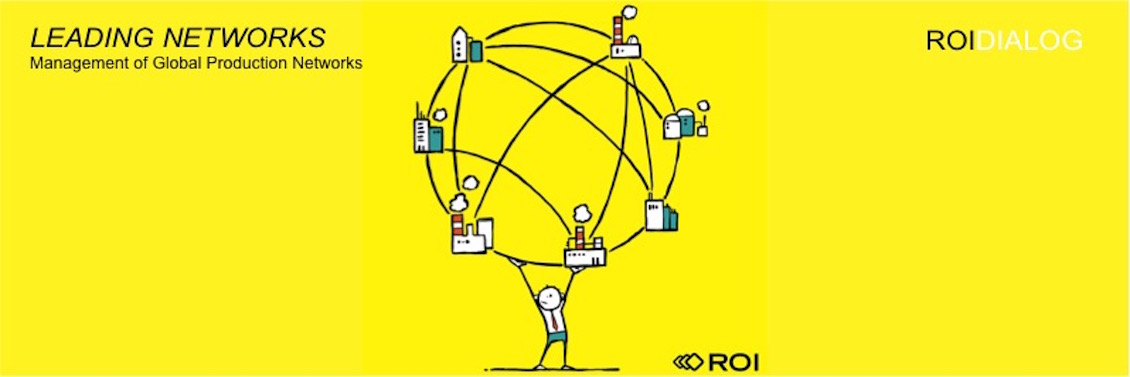Industry 4.0 approach and Lean Philosophy

Source: ROI DIALOG Issue 44, ROI Management Consulting.
Are lean and industry 4.0 principles contradictory or can both approaches work hand in hand?
Dr. Johannes Pohl and Prof. Dr. Werner Bick examined the differences as well as joint perspectives as part of a workshop at the TOP Transfer Forum of the F.A.Z. Institute and use their findings to develop recommendations for companies on the way to the smart factory.
'Industry 4.0 meets Lean' – this was the motto of the TOP Transfer Forum organized by the F.A.Z. Institute together with Maschinenfabrik Reinhausen GmbH with many prominent guests on June 25, 2014. ROI supported the conference as partner. Prof. Dr. Werner Bick, Chief Executive Officer at ROI and Professor at the University of Applied Science in Regensburg, and Dr. Johannes Pohl, Senior Consultant at ROI, ran a workshop during the event de- voted to the joint perspectives of the industry 4.0 approach and lean philosophy.
DIALOG: Professor Bick, how do Industry 4.0 and lean philosophy fit together? where is the common ground and where are the differences between the two approaches?
WB: Both approaches share the common aim of seeking a way out of the rapid growth in complexity that we have seen in recent years. Complexity here means that we are being confronted with increasingly dynamic and internetworked systems at both the macro level – for example through continuing integration of national economies and production networks – and at the level of individual factories. Complexity is enormously resource-intensive. Mastering it is the prerequisite for a business to retain is ability to act and remain competitive.
The central difference is in the underlying strategic approach. With lean approaches we try to reduce complexity and to achieve simple solutions with simple means. We decompose what are ultimately complex systems and problems. However, this meth- od naturally has its limits – and that is where the industry 4.0 approach comes in. Here it is fundamentally about simplifying the complexity from the viewpoint of the user, which is achieved by increasingly decentralized control and the use of assistants. One example of this are satellite navigation systems that make it fairly easy for car drivers to travel throughout Europe. Here, the enormous technological complexity is 'delegated' to the assistant – in this case the satnav – but is still an integral part of the overall system.
This clearly indicates the potential offered by the interaction of the two approaches, which is why we also advocate transferring this combination into practice through use cases.
DIALOG: satellite navigation is a good cue since it generates huge amounts of data. what role does big data play in the context of industry 4.0?
WB: A fundamental one! The networking and communications capabilities of machinery, production lines, freight cars and containers are absolutely crucial elements of industry 4.0 architecture. The data generated opens up three basic possibilities.
First, process and operations data can be analyzed with a very high degree of accuracy, yielding valuable insights for optimization, for example about the utilization levels of individual machines, idle times, environmental data such as temperature and a whole lot more. This provides a basis e.g. for applying lean methods, or enables adjustments to the amount of machinery used to be made.
Second, maintenance processes can of course be significantly optimized, leading to considerable savings and a longer service life for machinery. Maintenance becomes cheaper and simpler, too, because there is the prospect that a large share of it can be performed via remote access.
And finally, overall, it provides the chance of developing completely new business models. In this way, machinery manufacturers will build up a large portfolio of services since they will be able to establish benchmarks and best practices using the data of their equipment installed around the world and even develop cluster and significance analyses. This will enable them to support their customers in optimizing their production processes on a constant basis. These are not just pipe dreams. There are already manufacturers – pioneers – who are currently actively testing this area very successfully. It is worth noting that the opportunities offered by these scenarios to German industry in global competition are enormous.
DIALOG: Considering these perspectives, the question arises as to why realization is not further advanced. what are the biggest stumbling blocks?
WB: I would not talk about stumbling blocks. Every new technology – take the Gartner model as an example – needs a start-up phase in which initial disappointed expectations are overcome and standards are established. We are in this phase of the 'hype cycle'.
The broad basis is still missing, but there are indications that development will accelerate in the coming two to three years. It is therefore all the more important for companies to look into the subject today, to ask themselves what their own 'industry 4.0 level of maturity' is and what technological, organizational and personnel-related questions need to be asked.
Click on the following link to read the complete Dialog: ROI Dialog Issue 44
Tags: Lean Manufacturing, ICN, ROI

